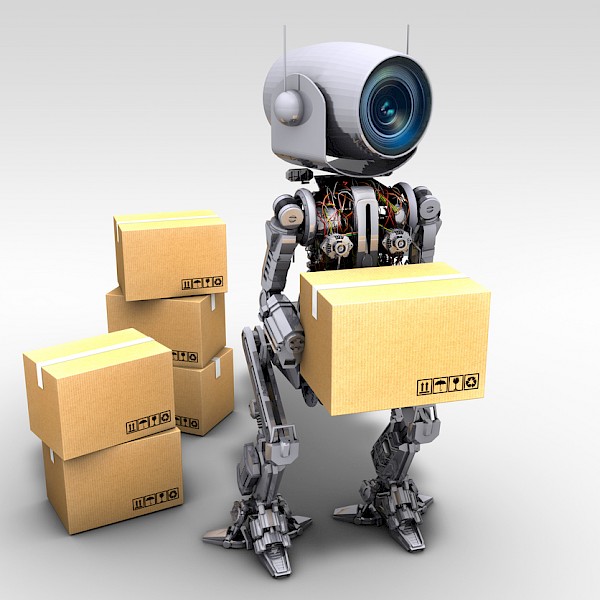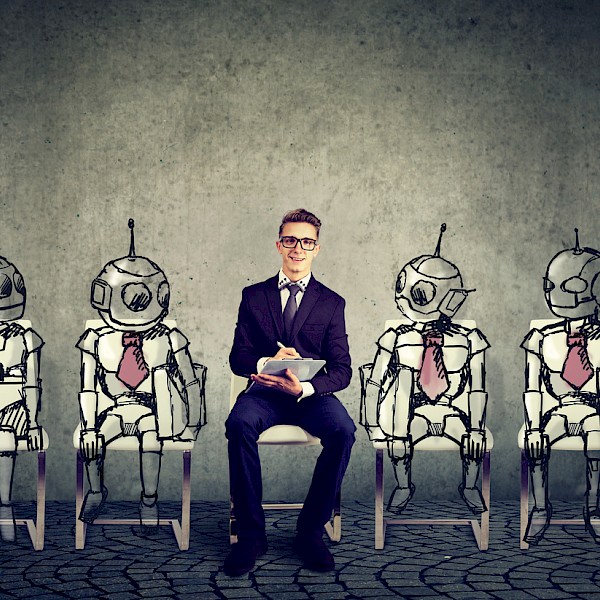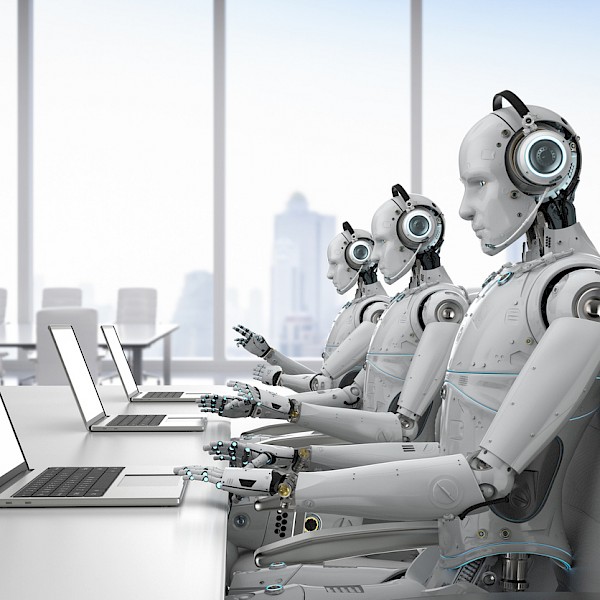How will robots transform the digital workplace?



Automation is growing as part of our workforce and working alongside machines is also becoming a universal practice. But, what does this mean for the future of employees in the workforce and is working alongside real-world robots benefiting our workplaces?
“[Robots] are, and will continue to, have a huge impact on manual jobs and create huge efficiencies for companies,” says Charles Towers-Clark, Group CEO of Pod Group. “Anything that can be put into a process can be automated. Anything that can be automated can be done by a computer. [And] once you add AI, computers can do specific tasks quicker and more accurately than humans.”


If tasks are routine, repetitive and predictable, then there’s a good chance that they can be automated right now. “Automation and AI will remove many tasks that can be defined into a process,” says Charles. “The question, then, is how many tasks within a role can be removed?”
The answer is a lot. Admin, filing and sorting can all potentially be delegated to machines – as can jobs like booking calendar dates with contacts. Machine learning algorithms, meanwhile, can perform more complex tasks, processing data in order to offer insights and recommendations and identifying anomalies. This leaves staff with more time to serve customers and clients, to focus on cognitively challenging tasks and to connect with colleagues.
In the short term, it’s unlikely that AI will be able to automate entire roles, contrary to common fears. It will allow staff members to do much more with the resources at their disposal and by enabling efficiencies, automation will allow businesses to make savings in both labour and resources. Deploying algorithmic forecasting, meanwhile, will make businesses far more agile and responsive.
Deploying AI will become a key competitive differentiator for enterprise businesses. And Charles is emphatic. “Companies that do not work with AI will not survive,” he says.


Of course, cutting staff too far will undermine an organisation’s core human capabilities – leaving relatively few people left to manage the machines. Because of this, it’s important for businesses to support learning and development for employees; and to help staff to maximise their own abilities as well as to look at how they can use technology.
Charles recommends focusing on key personal attributes. “In my book, ‘The Weird CEO’, I have outlined the attributes that employees will need in a world dominated by Artificial Intelligence,” he says. “These are Wisdom, Emotional Intelligence, Initiative, Responsibility and (Self) Development. Within the IoT company that I run – Pod Group – we went through a change process to encourage employees to use the human values that robots and AI do not possess, so that we could avoid job losses in the future.”
An even greater challenge, may be the impact that AI has on hierarchies – automating the workloads of new hires will mean that many of those individuals won’t have the opportunity to advance. This phenomenon will also have a broader impact on an international level – why use a foreign call centre when a computer can handle hundreds of calls at virtually no cost? Faced with streamlined hierarchies, organisations will need to be mindful that they continue to nurture talent – and that they remain diverse.


Real-world robots are also becoming increasingly ubiquitous – from self-driving cars, to unmanned delivery drones to automated combine harvesters. And much of this technology is already here. “[Amazon’s] ability for delivering orders quickly and accurately is largely dependent on robots,” notes Charles. “It is robots that have allowed Amazon to scale and to pass on reduced costs to consumers.”
“The concept of Artificial General Intelligence (AGI) where robots can replace humans is very far away,” says Charles. “However, AI can be (and is already) used to take narrow decisions based on far greater quantities of data than humans can process. Robots are already programmed to enact decisions that were previously made by humans. Therefore, robots will continue to replace humans when making specific decisions. However, robots (and, to date, AI) cannot match humans in bringing multiple, seemingly unrelated facts (including emotions) together to reach a decision. It is these human qualities that we need to educate, train and encourage to allow humans and robots to be good team mates.”
Looking ahead, AI still has a while to go before it completely transforms how we live and work (if it ever does completely change). While change will undoubtedly happen in the way the workforce works with automation. It is also going to deliver huge benefits for society – as well as vast opportunities for the future.

Empiric is a multi-award winning business and one of the fastest growing technology and transformation recruitment agency's specialising in data, digital, cloud and security. We supply technology and change recruitment services to businesses looking for both contract and permanent professionals.

Read more (pdf download)
Empiric are committed to changing the gender and diversity imbalance within the technology sector. In addition to Next Tech Girls we proactively target skilled professionals from minority groups which in turn can help you meet your own diversity commitments. Our active investment within the tech community allows us to engage with specific talent pools and deliver a short list of relevant and diverse candidates.
For more information contact
02036757777